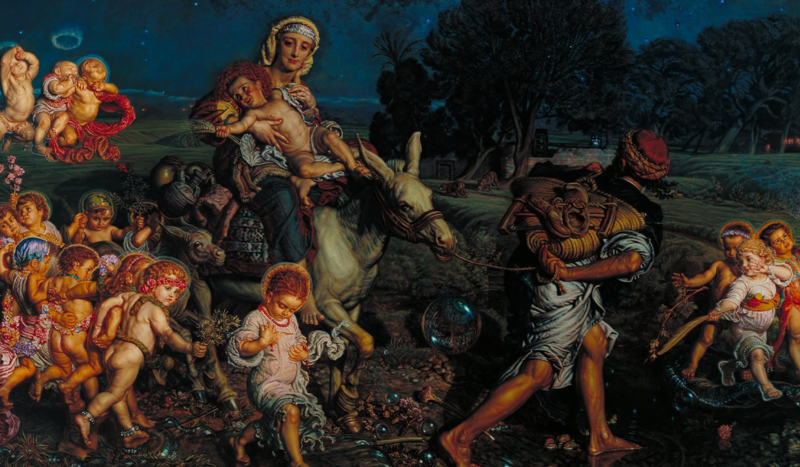
Triumph of the Innocents by William Holman Hunt
CV NEWS FEED // The Feast of the Holy Innocents marks a day of somber remembrance of the martyrdom of all the baby boys in Bethlehem shortly after the birth of Jesus. However, in some parts of the world, the feast is commemorated through childish jokes and pranks.
According to the Catholic Encyclopedia, the Latin Church has commemorated the December 28 feast day since at least 485 AD. The feast commemorates the martyrdom of the infants as related in the Gospel of Matthew, after the Wise Men return to the East without telling Herod the location of the Child Jesus:
“Then Herod, when he saw that he had been tricked by the wise men, was in a furious rage, and he sent and killed all the male children in Bethlehem and in all that region who were two years old or under, according to the time which he had ascertained from the wise men. Then was fulfilled what was spoken by the prophet Jeremiah:
“A voice was heard in Ramah, wailing and loud lamentation ,Rachel weeping for her children; she refused to be consoled, because they were no more” (Mt 2:16-18).
Scholars disagree on how many children were killed in the slaughter. Medieval scholars thought that it was 144,000, because this is the number named in Apocalypse 14:3, though modern scholars place the number between six and 20.
The Church venerates the babies as martyrs who entered heaven through baptism of blood: They were saved by giving their lives for Christ.
Pope Pius V introduced two hymns commemorating these infants in his 1568 Breviary, “Salvete Flores Martyrum” and “Audit Tyrannus Anxius”.
Tomás Luis de Victoria wrote a beautiful polyphonic hymn based on the chants of Salvete Flores Martyrum:
The most famous English hymn commemorating the feast is the “Coventry Carol,” which also dates from the 1500s:
Despite the somber nature of the feast, many Spanish-speaking countries celebrate Día de los Inocentes (Day of the Innocents) in a light-hearted manner. According to the website Naatik Mexico, the day is full of harmless pranks and jokes, similar to April Fools’ Day.
The website states that both the jokers can be considered “innocents” who must be forgiven, as well as the victims of the jokes, since “innocent” in Spanish carries a connotation of naivety.
In Catholic parishes, the feast is often connected to the pro-life movement. Catholics can pray this novena to ask for the intercession of the Holy Innocents for an end to abortion.

